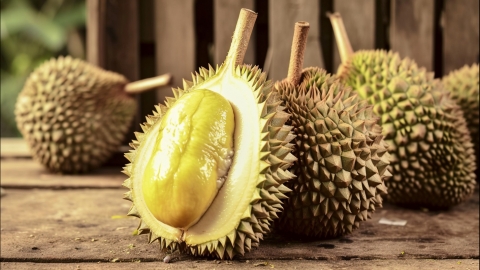Can children eat durian when they have a fever?
Generally speaking, whether a child with a fever can eat durian needs to be determined based on the child's specific health condition and the cause of the fever. If there are discomforts such as persistent high fever, vomiting, or other symptoms, prompt medical attention is recommended. Detailed analysis is as follows:

If the child has no obvious gastrointestinal discomfort, such as nausea, vomiting, or diarrhea, and the fever is mild, the child is in good spirits, and there are no signs of worsening inflammation like sore throat or cough, a small amount of durian may be tried. Durian contains carbohydrates, vitamins, and other nutrients that can provide energy to the body, but the quantity should be controlled to avoid excessive burden on the body.
If the child experiences severe gastrointestinal discomfort while having a fever, or if the fever is caused by an infectious disease, and the child appears lethargic and has poor appetite, eating durian is not recommended. Durian has a warming nature and may exacerbate inflammatory responses in the body. Moreover, its high sugar and fat content make it difficult to digest, which could further burden the gastrointestinal system and hinder recovery.
After giving a child durian during a fever, closely monitor for any discomfort such as increased body temperature or abdominal bloating. During fever, meals should primarily consist of light, easily digestible foods, such as porridge or soft noodles. If the child's fever persists or symptoms worsen, timely medical attention should be sought, and one should not rely solely on dietary adjustments to alleviate the illness.









